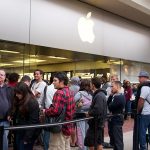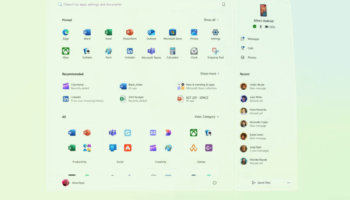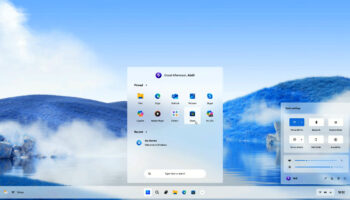iPad leaps ahead of iPhone browser usage, Opera Mini collapses

New iPad tipped the mobile web browsing balance, according to April data Net Applications released today. Apple's tablet now exceeds iPhone for browser usage share among mobile devices. That's 33.7 percent to 27.4 percent, after being neck and neck for the previous three months. iPad had nudged in front during February and March, but in April leapt ahead of iPhone.
Considering how much larger is iPhone's install base, or Android's for that matter, iPad's ascension is quite remarkable. Cumulative iOS device shipments reached 365 million during first calendar quarter -- nearly 67 million of them iPads. In all, iOS devices give mobile Safari tremendous usage share in the category: 63.84 percent, that's up from 52.36 percent in June 2011.
Have frequent Skype crashes ruined your relationships? Try the iOS update

iOS users now have an updated VoIP app to work with following the release of Skype 4.0 for iPad and Skype 4.0 for iPhone. The latest version focuses mainly on stability and accessibility improvements, but there are also a few other enhancements and new features to enjoy. There’s a new sign in screen in addition to a number of minor UI tweaks.
Anyone who finds the app prone to crashing should be happier with this new version. Skype promises generally-improved stability, and auto-restart in the event of a crash. This is hardly a ringing endorsement for a chat tool, but it’s a step in the right direction. Surely, it's better than untimely disconnects during an important video chat.
How big is Apple? [infographic]

A week ago, Apple reported record fiscal 2012 second quarter earnings. Profits soared by 94 percent to $5.99 billion, or $6.40 per share, from $39.2 billion revenue. In long missives that followed, I took to both sides of the company's performance: "Apple is better off without Steve Jobs" and "There is no Apple without Steve Jobs". Yeah, I argued with myself.
But what do the numbers mean? The accompanying infographic distills them in tidy fashion, and I won't repeat them here but simply add that during the first half of fiscal 2012, Apple generated more revenue ($85.83 billion) than all fiscal 2010 ($65.23 billion). The company's net income for first fiscal half exceeds that of fiscal 2009 and 2010 combined and is surprisingly close to all of fiscal 2011. By measure of financial performance Apple isn't the same company it was three years ago.
Security software market shows steady growth as threats explode

Faced with an ever-increasing number of threats, IT administrators continue to increase spending on security software, a new survey suggests. A recent report from Gartner shows revenue in the sector increased 7.5 percent in 2011 over the year previous. The gains come even as IT spending overall has stagnated due to uncertain economic conditions worldwide.
Altogether, revenues totaled some $17.7 billion last year, with market leading Symantec making up a fifth of that total. Gartner says the company's success in the sector is due to a continuing expansion outside of the antivirus software market and into other sectors, including storage and encryption. Coming in a distant second and third were competitors McAfee and Trend Micro, both making up about seven percent of the market.
What the frak is CISPA?

There's something really troubling about CISPA. While the Internet rallied against SOPA (Stop Online Piracy Act) and Protect IP, including boycotts, there is near silence about the Cyber Intelligence Sharing and Protection Act. This lack of interest hits BetaNews, too. For more than three weeks, I've asked writers here to do a CISPA story. No one wants it. Am I the only one scared witless about this thing?
I got to thinking about CISPA, again, this afternoon after the info graphic accompanying this story dropped in my mail box. It's a tidy explanation of what is CISPA that sheds some light on why the Internet isn't in uproar about it. Where's Anonymous? Who muted the Reddit outrage?
How do we just fix IBM?

Fourth in a series. Well it can’t be done from the inside, so it has to be done from the outside. And the only outside power scary enough to get through the self-satisfied skulls of IBM top management is IBM customers. A huge threat to revenue is the only way to move IBM in the proper direction. But a big enough threat will not only get a swift and positive reaction from Big Blue, it will make things ultimately much better for customers, too.
So here is exactly what to do, down to the letter. Print this out, if necessary, give it to your CEO or CIO and have them hand it personally to your IBM account rep. Give the IBM rep one business day to complete the work. They will fail. Then go ballistic, open up a can of whoop-ass, and point out that these requirements are all covered by your Service Level Agreement. Cancel the contract if you feel inclined.
Turn your Android device's camera into a Geiger counter with DARPA-funded app

Image Insight on Monday announced the first free trial release of GammaPix for Android smartphones, an application that loosely measures gamma radiation with the phone's camera.
The GammaPix gimmick is that it can detect radiation in different everyday situations, such as cosmic radiation while flying in an airplane, or gamma radiation in medical waste. You simply pull up the app, and begin taking a reading. Under normal circumstances, the camera can grab a complete reading in about five minutes.
The application uses technology that analyzes video and still imagery for the signature of gamma rays that have hit the image sensor. The measurements themselves indicate the rate of interactions of gamma ray radiation with the particular camera being used, so different phones will yield different results. Image Insight formed in 2010 with the explicit purpose of developing this app under a $679,000 contract with the Defense Advanced Research Projects Agency (DARPA).
Kindle Fire, Nook Tablet are better by design

The best-designed Android tablets you can buy today aren’t the sleekest or the sexiest. They’re not the most powerful. And they don’t boast the largest or brightest displays. What they do have, however, are sales. The tablets? The Kindle Fire from Amazon and Barnes & Nobles’ Nook Tablet.
On a runway awash with thin, pretty models, it’s easy to overlook this pair of plain Janes. But don’t. They are two of the top three largest-selling Android tablets on the market. And their formula should serve as a model for how to succeed in this market if you’re a supplier that’s lacking a throng of breathless fanatics aching to snap up anything you sell.
CyberLink Media Suite 10 Ultra review

CyberLink makes some great media software -- PowerDirector is probably the best consumer video editor available today -- but, unsurprisingly, for the most part it isn’t a cheap date. Equipping yourself with the company’s media player, media manager and video editor alone will cost you almost $170, for instance, and that’s before you’ve even thought about disc authoring, file format conversion and other desirable functions.
Fortunately CyberLink does offer a more cost-effective alternative in the shape of Media Suite 10. This bundles 11 CyberLink packages together, which makes them vastly cheaper: Media Suite 10 Ultra is $129.95 for the complete set, and if you opt for the Pro build instead (more on that later) then it can be yours for only $99.95.
LG enables real-time content sharing via new cloud service

LG will enter the cloud on Tuesday, debuting a new service aimed at sharing content across multiple devices. LG Cloud consists of apps for the Android and PCs, as well as LG's own line of smart televisions.
LG Cloud is part of a broader effort by the company to focus on both services and hardware. The offering will become part of a new LG division called the Smart Business Center, which is tasked with developing content and other services for its smart devices.
DensityScout sniffs out malware in compressed files

You think your PC is infected by something dangerous, but your regular antivirus package hasn’t raised any alerts. So what now?
This is a question we cover fairly often here. Only last week we reported on the latest version of Mandiant Redline, which will scan your system’s executables and highlight those most likely to be malware. Now, CERT (Computer Emergency Response Team) Austria has come up with another small contribution in DensityScout; it’s not for PC novices, but if you’re an expert computer user then you could find the program very helpful indeed.
What timing, avast! Free Antivirus for Mac exits beta as OS X security concerns escalate

Macs have been in the news more than normal recently. The Flashback Trojan shows the platform is just as prone to viruses and malware as Windows and other operating systems. Many Mac users believe -- wrongly, it might be added -- that OS X is immune to malware and does not need any form of protection. The latest high-profile infestation highlights the need for Mac security tools and; with almost uncanny timing, avast! Free Antivirus for Mac has exited beta and gone gold.
Software from avast! has been available for Windows for quite some time, and the Mac version of software is based on the same protection engine. The app is broken down into three basic areas -- File System Shield, Mail Shield and Web Shield -- and if you have used the Windows version of the tool, you’ll know pretty much what to expect. As is becoming increasingly common, this security tool takes advantage of community reporting to improve the analysis of suspicious files, helping to allow for faster responses to emerging threats.
Want more from Firefox 12? Try Pale Moon or Waterfox

If you were unimpressed by the fairly unexciting appearance of Firefox 12 last week, then today does at least bring some browsing alternatives by way of the performance-optimized spinoff projects, Pale Moon 12 and Waterfox 12. And although the lack of additions to the broader code base means they’re both essentially maintenance releases, there is still some interesting news here.
Pale Moon 12 notably has not moved to a silent install method, for instance, which means it won’t provide the maintenance service. The developer tells us there are several reasons for this, not least “the fact that Pale Moon has always been in favor of giving users the choice when and where to download and install an update to what is for most people the heart of their on-line experience”.
Microsoft, Barnes & Noble teach Apple and Amazon a lesson about educational ebooks

Nobody partners, or negotiates deals, like Microsoft. That's evident from today's stunning agreement with Barnes & Noble, which is sure to turn the ebook market on its head. The two will jointly invest in Newco, temporary name for ebook venture that incorporates B&N's digital and College business divisions. B&N gets partner in Microsoft, which invests $300 million, for 17.6 percent stake; both parties end ongoing patent disputes, largely related to Android; and Microsoft launches Windows 8 with native Nook Reader application. All around it's win-win, after losing a decade ago.
That's right, Barnes & Noble and Microsoft have been here before, in pioneering ebook ventures that failed. Both companies jumped on ebooks back when Amazon, which makes the popular Kindle, was still just a struggling Web 2.0 startup. Microsoft Reader led the first big ebook push at the turn of the century, and Barnes & Noble launched its original e-bookstore using the software. I bought my first ebooks there about 12 years ago. But by late 2003, it was over; Barnes & Noble gave up on ebooks -- a market later re-entered only after Amazon's Kindle success. Microsoft kept producing Reader software, but that's done, too, when the software retires on August 30.
It’s a race to the bottom, and IBM is winning

Third in a series. The current irrationality at IBM described in my two previous columns, here and here, is not new. Big Blue has been in crazy raptures before. One was the development of the System 360 in the 1960s when T.J. Watson Jr. bet the company and won big, though it took two tries and almost killed the outfit along the way. So there’s a legacy of heroic miracles at IBM, though it has been a long while since one really paid off.
There are those who would strongly disagree with this last statement. They’d say that with its strong financial performance IBM is right now in one of its greater moments. But haven’t we just spent 2000 words showing that’s not true? Successful companies aren’t heartsick and IBM today is exactly that, so the company is not a success.
© 1998-2025 BetaNews, Inc. All Rights Reserved. Privacy Policy - Cookie Policy.




